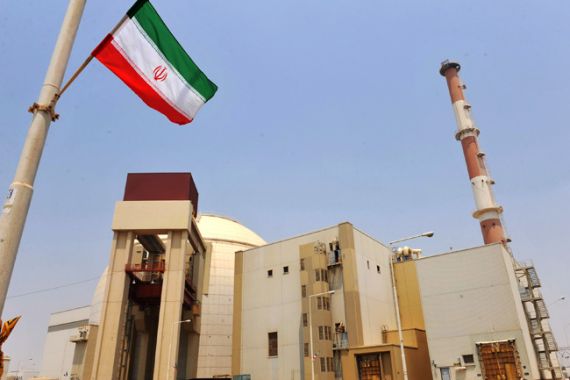EU says Iran nuclear talks ‘making progress’
White House adds chance of limited pullback of sanctions if proof is provided that Tehran is ending its programme.

World powers are “making progress” in talks with Iran over its contested nuclear programme, a spokesman for European Union Foreign Policy Chief Catherine Ashton has said.
The six nations – the United States, Russia, China, France, Britain and Germany – started two days of negotiations on Thursday in Geneva to try to end a decade-old standoff over Iran’s nuclear intentions.
“We are making progress,” said EU spokesperson Michael Mann. He added that Ashton would meet the Iranian foreign minister, Javad Zarif, on Friday “to allow more time to work through some issues”.
He said diplomats from the six nations would meet early on Friday to prepare Ashton’s talks with Zarif.
Earlier, White House spokesperson Jay Carney said the US government would consider a limited pullback of sanctions in exchange for clear evidence that Tehran was taking steps to stop its nuclear programme from advancing.
He said that Iran would have to show “concrete, verifiable measures” to address long-standing international concerns, after which the six powers “would consider limited, targeted, and reversible relief that does not affect our core sanctions architecture”.
Carney said that if Iran failed to show progress on its nuclear programme, the “moderate” sanctions relief could be reversed, and stiffer sanctions could be imposed.
Opposition to loosening sanctions
However, politicians in the US maintain their opposition to any relief for Iran, with the US Senate banking committee saying it would move ahead with a package of tough new sanctions after the Geneva talks ended.
Senator Tim Johnson, a Democrat, said majority leader Harry Reid told him to go ahead with the mark-up – or consideration – of the bill, a step toward bringing it to the full Senate for a vote.
International sanctions against Iran focus on key sectors such as defence, finance and oil, with the aim of persuading Tehran to end its nuclear programme, which foreign powers allege is being used to develop a nuclear weapon and Iran says it purely for peaceful purposes.
The UN, the US and the EU have all adopted increasingly tough measures over the past seven years, badly affecting Iran’s economy and its currency.
On October 3, US President Barack Obama’s administration urged politicians not to impose further sanctions on Iran as it seeks to respond to overtures from new President Hassan Rouhani.